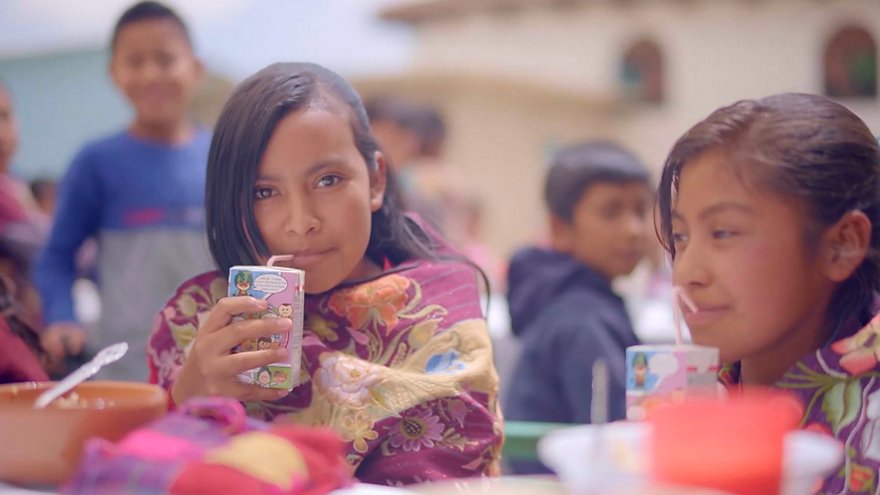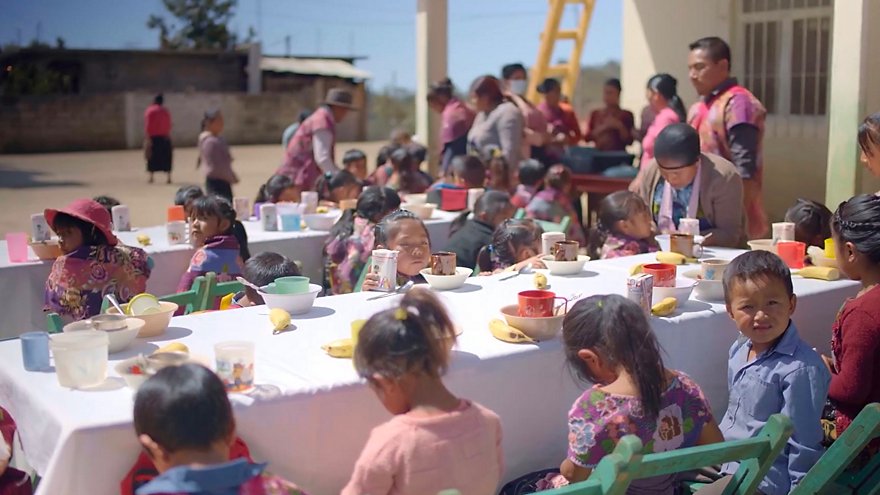Close to a century of school milk in Mexico
Throughout history, school feeding programmes have played a key role in addressing challenges related to malnutrition, education, and food insecurity, and often they provide the first meal of the day for children. The school milk programme in Mexico is one of the longest running programmes in the world and has made significant contributions to addressing those challenges.
According to the World Food Programme, 388 million children in at least 161 countries receive meals at school every day.Since 1951, Tetra Pak has been working to increase access to safe and nutritious food all around the world. Collaboration has always been the way forward, contributing with innovative technology and expertise to make a meaningful difference.

Addressing malnutrition challenges
The "Roaring Twenties" came to a halt on Black Tuesday in October 1929, when stocks took a nosedive, contributing to the Great Depression. However, the same year a school milk programme was created in Mexico as the “Drop of Milk Programme” and it continues to be one of the longest running feeding programmes in the world today. The programme was developed to tackle the challenges related to child malnutrition, school attendance, and food insecurity. It also has a strong link with local agriculture production, and milk was chosen as the vital source of nutrition for school children while also benefitting local farmers and incentivising production. This was important since 13.4% of the country’s labour force is employed in the agriculture sector. Mexico’s Agriculture Secretariat (SADER) ranks Mexico as the 13th largest producer of milk worldwide, with production projected to reach 12.9 million metric tons in 2021.
Over the decades, the government has also put very important measures into place to prioritise and maintain the support for children and communities. For example, several pieces of key legislation have been passed including the Child Protection Law that created the National Child Protection Institute (INPI) in 1956. Subsequent legislation including the Child Assistance Law and the National General Health Law were passed, prioritising child nutrition and school feeding.
The Tetra Classic® Aseptic package is introduced to overcome distribution challenges
The implementation of legislation was key because, as the programme grew in coverage throughout the country, safe distribution of milk was challenged by various logistical and infrastructure factors, especially in remote areas where a viable cold chain did not exist. As a practical solution to overcome theese distribution and food safety challenges, Tetra Classic® Aseptic 250ml. packages were introduced in 1962, marking the first school milk programme where Tetra Pak packages were used.
In 1977, the government created the National System for Integral Family Development (DIF), which would serve as the primary public institution for social assistance, focused on strengthening and developing the welfare of families and communities across the country. The DIF also mandates national coverage with decentralised support from their agencies located in each state countrywide. As part of its various activities, the DIF is the government entity that manages the school feeding programme today. Included under DIF school feeding programme regulations are that a serving of 250ml of milk is mandated as a component of their breakfast programme. In addition to the aseptic packages, Tetra Pak has also been supporting in other ways.
“Through the programme we’ve been able to offer our partners practical support in sharing best practices in food safety and quality used worldwide. We also share best practices in environmental education and recycling in schools as well as promote nutritional awareness,” says Robert Graves, Managing Director, Tetra Pak Mexico.

Making a lasting difference in Mexico
Today, more than six million children benefit from school feeding in Mexico. Studies conducted by the Centre of Nutrition and Health Investigations from the National Institute of Public Health have demonstrated the positive impact of fortified milk consumed by children. During a 12-month period, the presence of anaemia was decreased by 21.6%, while iron deficiency decreased by 3.2%. Median iron and zinc intake also increased by 0.96mg and 0.3mg per day, respectively.
Tetra Pak has been actively involved in supporting manufacturers who produce UHT (ultra-high temperature) milk for the programme and currently there are 14 Tetra Pak customers delivering milk and nutritious beverages to children in schools countrywide. Tetra Pak continues to collaborate with customers and relevant stakeholders to support activities in schools promoting nutritional awareness and environmental education. Latin American school feeding conferences have also been hosted in Mexico with the objective of sharing best practices and experiences from many countries in the region. These best practices are also shared from Mexico with school feeding programmes in 56 countries around the world where Tetra Pak participates.
“Mexico is a flagship example of how demonstrating the importance of impact data, link to local agriculture and economic development, community engagement and policy implementation can play a vital role in the long-term sustainability of a school feeding programme,” explains Rafael Fabrega, Director, Tetra Laval Food for Development.